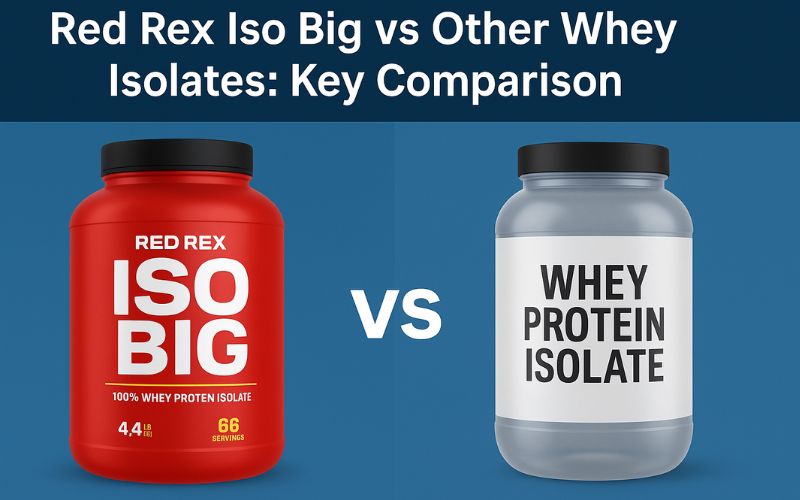Best Time to Take Imported Supplements for Muscle Gain
Imported supplements have earned a reputation for superior purity, quality, and effectiveness—especially among serious lifters and athletes. But to unlock their full potential, timing is everything. Whether you’re using whey protein, creatine, or BCAAs, taking the right supplement at the right time can mean the difference between hitting a plateau or making serious gains.
This guide dives deep into science-backed supplement timing strategies, helping you create a daily routine that maximizes every scoop, capsule, and rep.
Understanding Muscle Gain: The Role of Nutrition and Supplementation
Muscle growth is driven by a balance of:
- Progressive resistance training
- Adequate protein intake
- Caloric surplus
- Consistent recovery and sleep
Muscle protein synthesis (MPS)—the process of building new muscle fibers—is stimulated by resistance exercise and amplified by certain nutrients, especially protein and amino acids. Supplements help fill nutritional gaps, improve workout performance, and enhance recovery—but only if timed strategically around these windows of opportunity.
Best Time to Take These Popular Imported Supplements for Muscle Gain

Following are the best time to take these popular imported supplements for muscle gain
Whey Protein: Pre vs. Post-Workout Benefits
Imported whey protein is a fast-digesting, high-quality protein ideal for stimulating MPS.
- Post-Workout: The gold standard. Taking 20–40g of whey protein within 30–60 minutes after your workout helps repair muscle tissue and initiates muscle growth.
- Pre-Workout (30–45 mins before): If you haven’t eaten in hours, a pre-workout shake can elevate amino acid availability during your session.
Best Practice: Prioritize post-workout, but pre-workout use is helpful when training fasted.
Creatine Monohydrate: Loading Phase and Optimal Timing
Creatine enhances strength, muscle volume, and recovery—especially when taken consistently.
- Timing: Research supports post-workout as the most effective window due to improved insulin sensitivity and muscle uptake.
- Loading Phase (optional): 20g daily (split into 4 doses) for 5–7 days, then shift to a 3–5g maintenance dose.
Best Practice: Take 3–5g after training with a carb or protein meal to enhance absorption.
BCAAs (Branched-Chain Amino Acids): Intra vs. Post-Workout
Leucine, isoleucine, and valine support endurance, reduce muscle breakdown, and aid recovery.
- Intra-Workout: Popular among lifters training in a fasted state or cutting phase.
- Post-Workout: Can support MPS, but not superior to a complete protein source.
Best Practice: Sip BCAAs during long or intense workouts, especially when fasted.
Beta-Alanine: Why Timing Doesn’t Matter as Much
Beta-alanine boosts muscular endurance by buffering lactic acid buildup.
- Timing: Not time-sensitive. Focus on daily consistency (2–5g per day).
- Can cause temporary tingling (paresthesia), so split into 2 doses if uncomfortable.
Best Practice: Take any time, with or without meals.
Pre-Workout Formulas: Energy and Focus Before Training
Imported pre-workouts usually combine caffeine, beta-alanine, citrulline, and nootropics for improved performance.
- Timing: 20–30 minutes before your workout.
- Avoid late evening use if sensitive to stimulants.
Best Practice: Use only on training days when energy or focus is low. Avoid overuse to maintain caffeine tolerance.
Mass Gainers: Strategic Use Around Workouts or Before Bed
Mass gainers are calorie-dense blends of carbs, proteins, and sometimes fats.
- Post-Workout: Excellent for hard gainers who need to replenish quickly.
- Before Bed: Ideal if you’re falling short of daily calorie targets.
Best Practice: Use post-workout or at night based on your daily calorie needs.
Multivitamins and Omega-3s: Daily Consistency Over Timing
- Multivitamins: Best taken with food, usually in the morning or lunch to improve absorption.
- Omega-3s (EPA/DHA): With a fat-containing meal to improve bioavailability.
Best Practice: Choose a consistent mealtime to integrate these into your routine.
ZMA and Sleep-Based Recovery Supplements: Nighttime Use
ZMA (zinc, magnesium, B6) supports testosterone levels, deep sleep, and muscle recovery.
- Timing: 30–60 minutes before bedtime on an empty stomach.
Best Practice: Avoid calcium-rich foods at the same time, as they interfere with zinc absorption.
Morning vs. Evening Supplementation: Does It Affect Muscle Gains?

- Morning workouts: Emphasize fast-digesting pre-workout fuel like whey or banana + protein shake. Use creatine and recovery supplements post-workout.
- Evening workouts: Supplement timing shifts later but follows the same structure.
- Circadian rhythm slightly influences digestion and hormone levels, but consistency outweighs timing differences.
Supplement Stacking Schedule: How to Combine Multiple Supplements Daily
Here’s a sample daily supplement routine for a lifter training in the afternoon:
- Morning (with breakfast)
- Pre-Workout (30 mins before training)
- Pre-workout formula
- Whey protein (if fasted)
- Pre-workout formula
- Intra-Workout
- BCAAs + water
- BCAAs + water
- Post-Workout (immediately)
- Whey protein + creatine (3–5g)
- Whey protein + creatine (3–5g)
- Evening
- Mass gainer (if needed to meet calorie goals)
- Mass gainer (if needed to meet calorie goals)
- Before Bed
Common Mistakes to Avoid in Supplement Timing
- Mixing creatine with caffeine: Can interfere with uptake in some individuals. Take it separately if you’re caffeine-sensitive.
- Skipping post-workout protein: Missing the recovery window limits gains.
- Not taking fat-soluble supplements (like omega-3s) with meals.
- Overusing pre-workouts: Leads to tolerance and energy crashes.
How to Adjust Supplement Timing Based on Workout Schedule
| Workout Time | Key Supplement Timing Tips |
| Early Morning | Pre-workout + fast-digesting carbs, post-workout protein + creatine |
| Midday/Afternoon | Standard AM-PM schedule (see above) |
| Late Night Training | Use stimulant-free pre-workout, post-workout shake + ZMA after digestion |
Real-World Tips for Getting the Most Out of Your Imported Supplements
- Hydration: Creatine and pre-workouts require adequate water intake.
- Pair with meals: Enhances absorption and minimizes digestive discomfort.
- Track consistency: Use apps or journals to monitor supplement usage.
- Stick to trusted brands: Look for 3rd-party tested products with proper labeling.
Final Thoughts: Build Muscle Faster with Smarter Supplement Timing
Imported supplements offer powerful support for muscle growth—but only when integrated into a well-structured routine. By understanding when to take each type of supplement and how they interact with your body and training schedule, you’ll maximize your results and reduce wasted effort.
Smart timing, consistent effort, and informed stacking strategies can give your muscle-building journey a serious edge.









Add comment